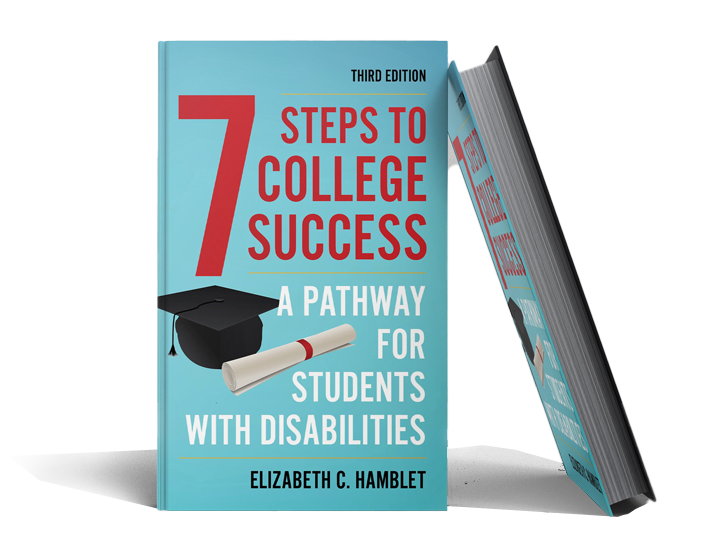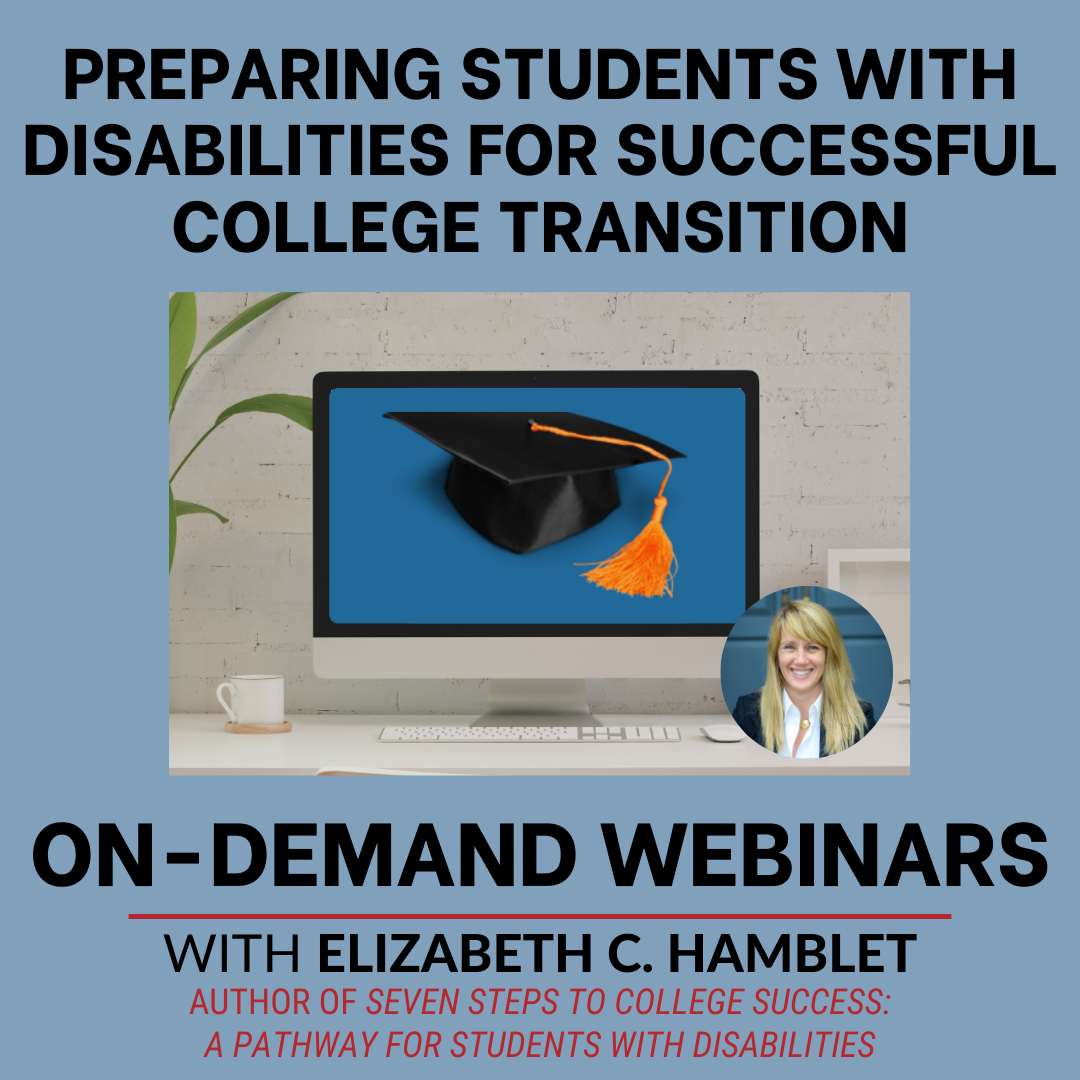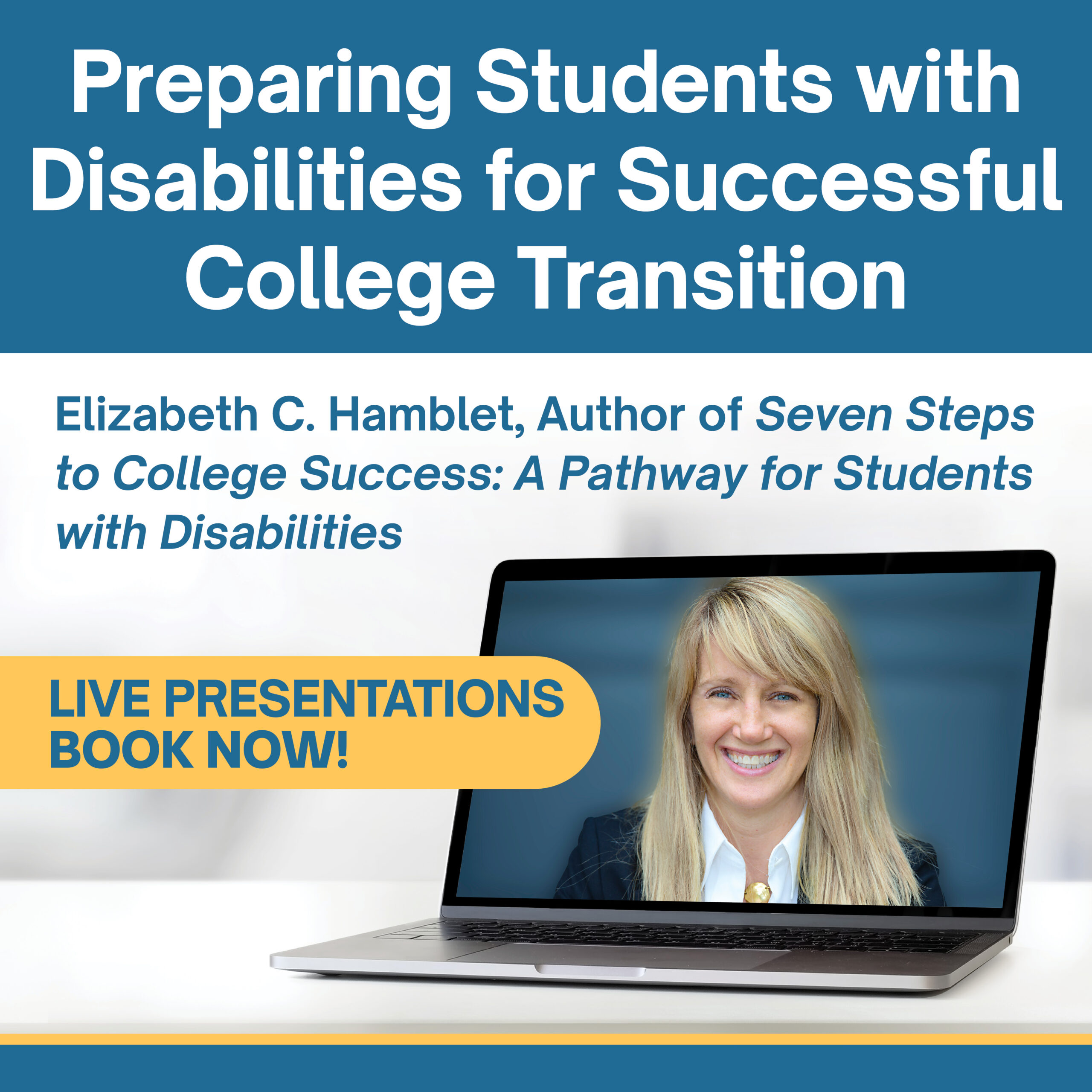Introduction
The unstructured college environment is a challenge for most students, and for those with ADHD, that lack of structure can be even more of an issue. Students with ADHD can be successful at college, but it can be helpful to know what to expect and plan ahead.
I interviewed Kathleen Nadeau, founder of The Chesapeake Center for ADHD and the author of several books (including Survival Guide for College Students with ADHD or LD) for my second book. Her advice remains relevant so I’m sharing it on my blog. (See my new book for updated interviews and information.)
Advice on College Searches
Many students don’t need to focus on colleges offering fee-based programs that provide additional supports, but there are some points to consider.
College Readiness As a Search Consideration
Before we even discuss where a student should go, I talk with families whether the student is ready to go away from all of the structure and support of home. Some students are academically ready for college, but they are not ready to be successful away from home.
More and more students are opting to attend a community college for the first year or two and then transfer to a four-year college or university after they have had more time to develop the daily life management and time management skills necessary to succeed.
Researching College Supports
For students who do plan to go away to school, the next set of questions relates to how much support the student will need and which colleges offer an adequate level of support. While all colleges and universities are bound by law to provide basic accommodations, some schools go the extra mile and offer a broad array of coaching, counseling, support groups and study skills classes for students with attention and learning disorders. [Author note – some do this for free, others through structured, fee-based programs.]
School Size and Proximity to Home
The standard rule of thumb is that closer and smaller is better. I’ve worked with some students that attended a four-year college within a two-hour drive of home that actually lived at home and continued to attend classes at their chosen college while recovering from a semester of poor grades and withdrawal from one or more classes.
Planning for College Self-Management and Success
If parents decide their student is ready for the traditional college environment, there are approaches that can help students from becoming overwhelmed by the workload and lack of structure and support.
Reduced courseload
Parents can suggest that their student take a reduced course load – taking no more than 12 credit hours (equal to four courses) at the start. Students need to have less to manage each semester, and they can stay on track for graduation with their entering class by taking winter term or summer courses.
Plan on taking more than 4 years to finish
For students with ADHD, taking five years to complete college is a very real possibility if they want to be able to manage their course load each semester and do their best work.
Work with an ADHD coach
Students may not be receptive to working with an ADHD coach at first. But if parents can find one that is a good match for their student, they’ll find that the student can greatly benefit from having someone that can provide them with strategies, structure and support. Often, students are more receptive to advice from a coach than they might be to the same advice from a parent.
If students started with a coach before college, it can be very helpful to maintain regular contact with them for a period of time, serving as a bridge to building a support network on campus, or to continue the support remotely if needed.
Medication Management
For students who take medication, continuity of treatment is something families have to think about before they arrive at college. Some students try to stay in treatment with their doctor at home. However, this often doesn’t work well.
Because students with ADHD are rarely organized enough to plan ahead and refill their stimulant medication before running out, their doctor will often receive a panicked call from them because they have a big paper due or a big exam. Usually, if medication management for ADHD is available through student health services on campus, I advise my students to transfer their care to the on-campus physician.
Another concern is medication sharing (or even theft!). I advise students to not broadcast the fact that they take stimulant medication and to store it in a receptacle that doesn’t advertise that it contains stimulants – reminding them that they need to keep the prescription container with their medications to have proof that it was prescribed for them.
Registering with disability services
Parents’ greatest frustration when their child with ADHD attends college is their resistance to accessing support services on campus. For some, they have a sense of shame and discomfort that is a hold-over from his/her high school years, when no adolescent wants to feel “different” and may be the object of teasing if s/he receives support services. Other students see college as a way to escape their parents’ grip. They may feel that their parents exaggerated their need for supervision and control. They view their entrance into college as an opportunity to “prove” that they can manage on their own.
Sadly, too many students with ADHD experience a “crash and burn” semester and return home feeling chastened and discouraged. For some students, this kind of dramatic failure is required before they acknowledge that they can’t “just do it” without support services.
Sometimes it’s a matter of waiting for brain maturation before these students are willing to acknowledge their need for support and take the steps to receive it.
[See talking points adults can use to encourage students to register, and a post speaking directly to them – both address the concerns Nadeua expressed.]
Start the preparation early
Even with medication, therapy, and disability accommodations in place, college can be a challenging environment for students with ADHD because so much self-management is required. Time management is a major component of success there, and because brain maturation lags in these student, good self-management skills are delayed in developing.
Parents can start to prepare students for the shift when they are in high school; by senior year, students should be waking themselves up and managing their own schedules. Doing this will also give parents a good sense of whether their student is ready for the independence of going away to college.
When doubts have arisen about students’ ability to handle themselves, I have seen wise parents set clear guidelines. They have told their student, “You have to be able to do x, y, z consistently to convince us that you’re ready to go away to college.” Gap year programs or taking classes at the local community college are often good alternatives until the student can demonstrate level of maturity needed for success in college away from home.




